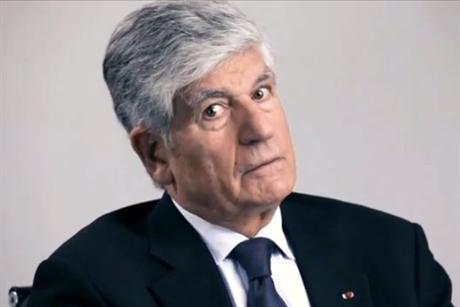How can two world-renowned business leaders commit first-time-beginner mistakes ?
Told you so …
Some critics, journalists and experts from all walks of life relish in pointing out how accurately they had predicted a business failure many months before it occurred. One year exactly after Publicis and Omnicom announced their plan to merge, I don’t take much pride in having spelt out at the time what would happen to their phantasm of becoming the world’s largest marketing services company: John Wren and Maurice Levy’s proposed scheme contained all the misconceptions and glaring mistakes one can possibly make in a merger or acquisition. A real beginners’ job. It is actually quite shocking to see two internationally respected businessmen totally ignoring some of the basic rules they could have found in the introduction of “Mergers and Acquisitions for Dummies”, which is easily available from Amazon alongside my own “Perfect M&As – The Art of Business Integration”.
Visualising the end game

The Publicis-Omnicom proposed deal did not rest on a compelling business case, and in the absence of a clear and credible statement of the benefits the merger will
provide, one cannot expect to have the drive and motivation to overcome the many hurdles and challenges that need to be resolved as two organisations blend to become one. Who is the individual that will set the tone? What will the resulting merged company look and feel like considering the two companies each have a strong but very different culture? How well will Wren and Levy agree on key decisions? The answer to this last point became blatantly obvious: not being able to agree on the nomination of the CFO is just so basic one struggles to understand how Messrs Wren and Levy allowed themselves to reveal with such enthusiasm and optimism a plan for which the first elementary steps had not even been thought through.
By Omnicom’s chief executive’s own admission : “There was no clear finish line in sight”. How is it conceivable that such senior and supposedly experienced business leaders could ignore the most basic prerequisites of a successful business integration?
Preparation, preparation, preparation

It will take a good autopsy of this failed merger to reveal how much (or how little) advice the two companies had requested and received and considered prior to announcing their merger plan to the world. Was there really that little due diligence prior to the announcement, or did the two businessmen simply ignore any warning signs they might have been given? Were they blinded by the prospect and thrill of becoming the world’s number one agency, bigger, better and bolder than Sir Martin Sorrell’s WPP? When Publicis and Omnicom announced their intention to merge, my article referred to “The obsession with size”. Was this finally just about two over-inflated egos, or was there truly a cogent business rationale which failed to materialise?
How is it that nobody had anticipated that tax considerations would invalidate the complex structure on which the proposed combined company was due to be set-up? Last year, in writing “shareholders vote by raising their hand, but clients can vote with their feet”, I was wondering how forcing fierce global rivals such as Coca-Cola/Pepsi, Nestlé/Mars or Microsoft/Google to deal with one combined agency would not run into regulatory problems or result in some of those key clients seeking other options. Now it transpires that amidst the difficulties to keep the merger on track, talent and client retention also became a big challenge: is that at all surprising?
Maintaining focus
Any book or “how to” manual on M&A will tell you that one of the big challenges during the merger process is to manage the dual focus of keeping day-to-day business on track whilst maintaining the integration drive. Publicis already had a few problems of its own to resolve prior to the merger announcement, and attempting a complex merger in that state is like covering rust with glossy paint that will not take long to peel off. In the absence of clear succession plans in Publicis Maurice Levy had already postponed his retirement before the merger proposal was on his radar screen, so by what miracle would the key pieces of the puzzle all fall beautifully into place in a combined Publicis-Omnicom organisation if Publicis could not figure out how to organise itself as a stand-alone entity?
Predictably, the uncertainty and lack of unity of vision that rapidly emerged after the merger announcement proved a huge distraction to the business. Now the engagement is over, and the bruised fiancée is licking her wounds. Publicis’s shares have dropped 16% since the beginning of the year, wiping off EUR 1.8 billion of the company’s value, with a drop in net income and further margin erosion, whilst Omnicom announces a healthy rise in revenue.
After such a poor performance, Maurice Levy had better return to his desk and thrash out a coherent succession plan to restore clarity within Publicis, as many shareholders will feel he has reached the end of his shelf-life.